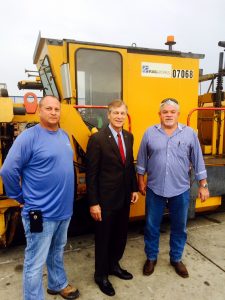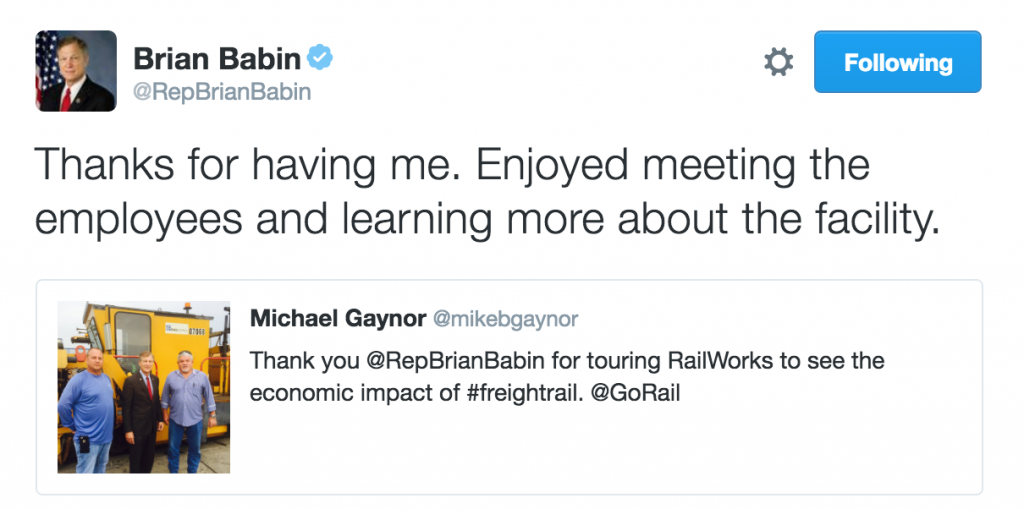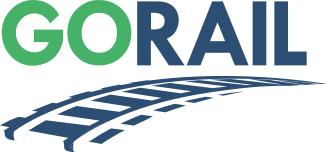Deer Park, TX — U.S. Representative Brian Babin joined GoRail and the National Railroad Construction and Maintenance Association (NRC) for a tour of RailWorks Track Systems’ facility in Deer Park on August 18. RailWorks is a leader in track and transit systems construction, rehabilitation, and maintenance services for America’s rail infrastructure.

Locally in Deer Park, RailWorks employs 260 Texans who work on projects throughout the 36th district and the surrounding region. With customers in all 50 states and Canada, RailWorks also supports thousands more jobs nationally.
“Infrastructure is the backbone of our economy and the track that RailWorks builds and maintains is critical to America’s rail network,” said Rep. Babin. “I was pleased to learn more about the facility in Deer Park, which not only supports the hundreds of Texans who work here, but also the thousands of businesses in Texas and across the country that utilize rail and will benefit from enhanced efficiencies from new and upgraded track.”
The tour group, led by Bob Rolf, RailWorks Track Systems’ vice president and general manager, learned about the company’s important contributions to track maintenance and new construction, which augment efficiency and safety across the network. One recent project in Baytown, Texas, for which RailWorks provided comprehensive track construction services, increased the storage-in-transit capacity at three Chevron Philips plants by an additional 2,000 railcars, improving efficiency for their customers.
“We are proud to host Congressman Babin at the Deer Park facility and give him a hands-on look at the work we do in support of the 140,000-mile rail network,” said Rolf. “It’s a good opportunity to underscore the economic impact of the freight rail industry—including rail supply companies—to our legislators in Washington. The work we do, from track inspections to emergency repairs to track rehabilitation, ripples throughout the economy because it makes our transportation network safer and more efficient, benefiting businesses and consumers alike.”
The group concluded the tour with a discussion of the public policy issues affecting rail suppliers and railroads. The nation’s freight railroads operate almost exclusively on infrastructure owned, built and maintained by the industry. Since the partial economic deregulation of the industry in 1980, freight rail has spent more than $600 billion on infrastructure, research, testing and new, more fuel-efficient locomotives.


